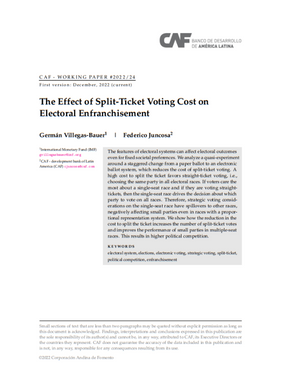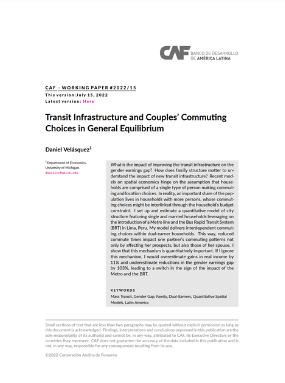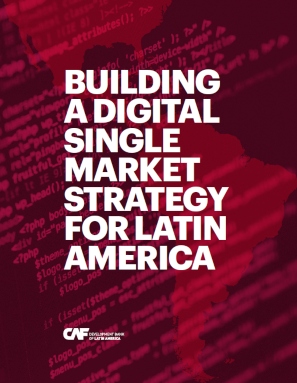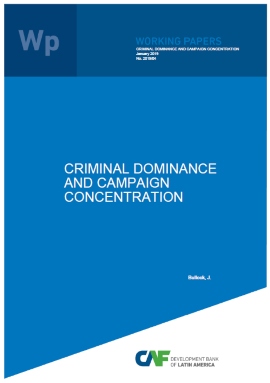The Effect of Split-Ticket Voting Cost on Electoral Enfranchisement
Abstract
The features of electoral systems can affect electoral outcomes even for fixed societal preferences. We analyze a quasi-experiment around a staggered change from a paper ballot to an electronic ballot system, which reduces the cost of split-ticket voting. A high cost to split the ticket favors straight-ticket voting, i.e., choosing the same party in all electoral races. If voters care the most about a single-seat race and if they are voting straighttickets, then the single-seat race drives the decision about which party to vote on all races. Therefore, strategic voting considerations on the single-seat race have spillovers to other races, negatively affecting small parties even in races with a proportional representation system. We show how the reduction in the cost to split the ticket increases the number of split-ticket votes and improves the performance of small parties in multiple-seat races. This results in higher political competition.
Subject
Country / Region
Date
2022-12Cite this publication
Belongs to collection
Author
Villegas-Bauer, GermánJuncosa, Federico
Items Relacionados
Transit Infrastructure and Couples’ Commuting Choices in General Equilibrium
What is the impact of improving the transit infrastructure on the gender earnings gap? How does family structure matter to un‐derstand the impact of new ...
Building a Digital Single Market Strategy for Latin America
This report aims to identify and discuss the possible scope, opportunities, and main legal and regulatory challenges associated with the launch of a ...
Criminal Dominance and Campaign Concentration
There are many journalistic and anecdotal accounts about the prevalence of electoral corrals in Brazil, geographic areas where brokers, politicians, or ...





